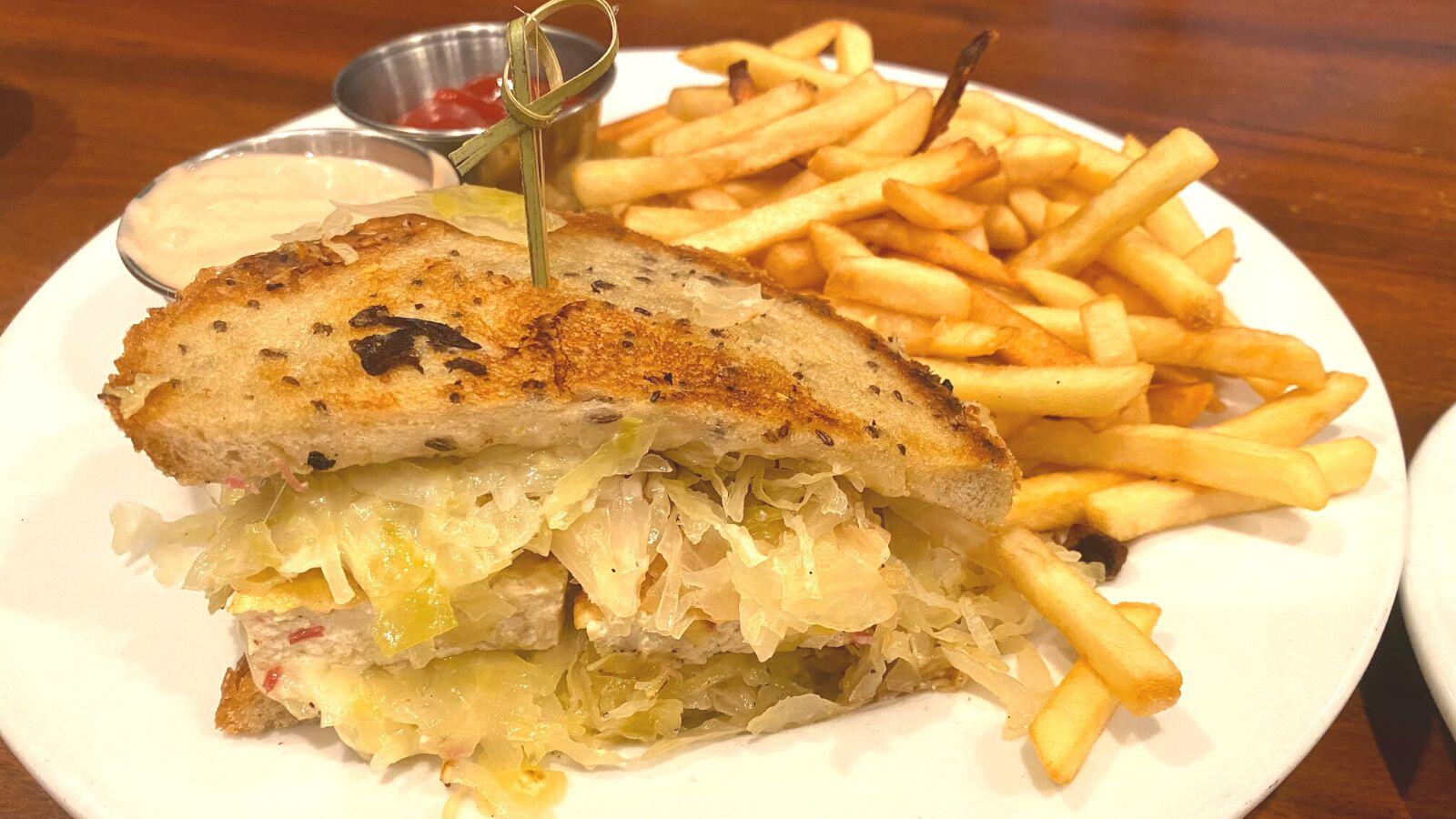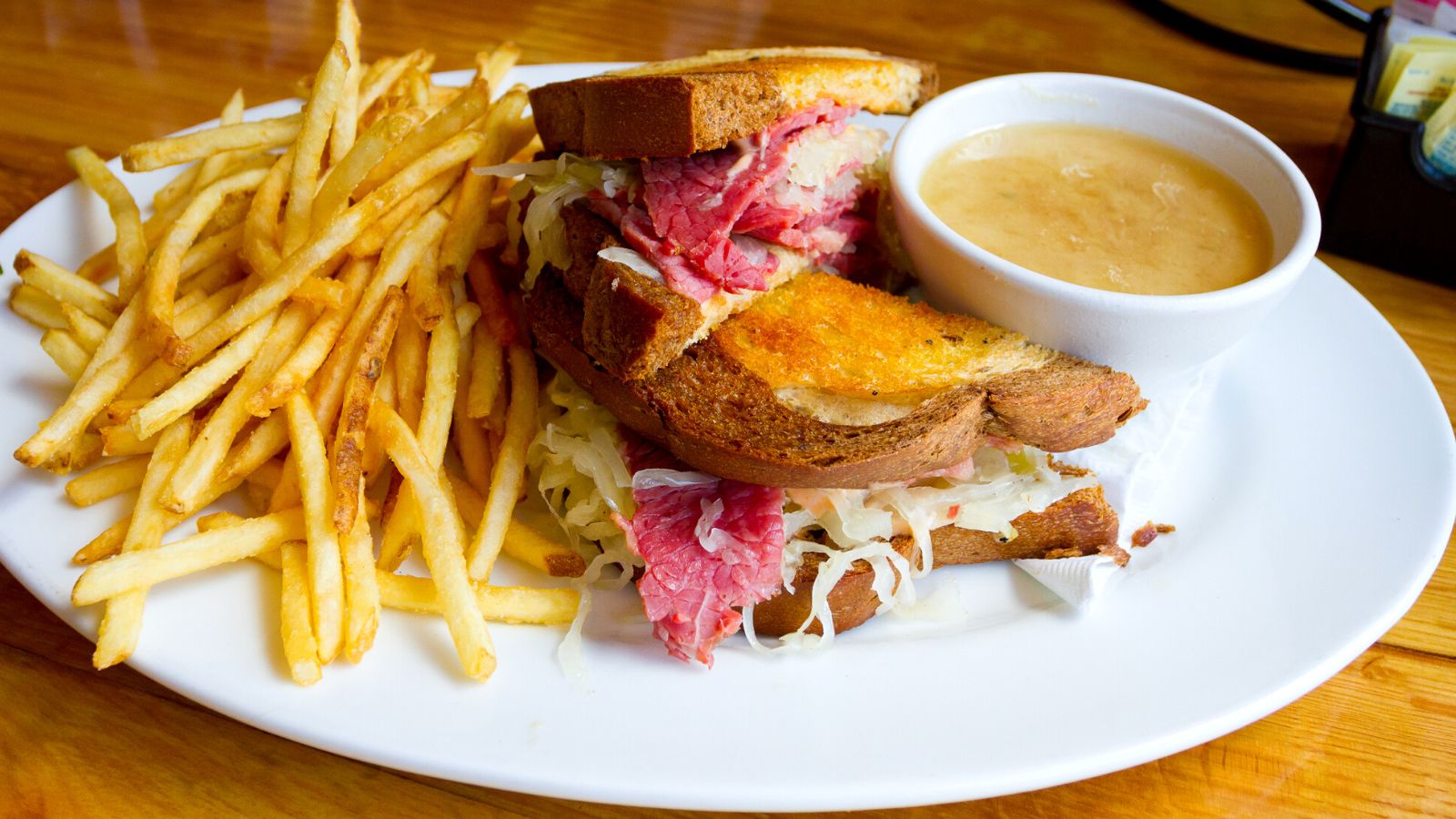It’s Saturday morning, and your family is hungry. Thankfully, the deli down the street is within walking distance — it’s hard to miss, as the front patio is littered with coin-operated kiddie rides and a queue of hungry patrons. As you walk in, jugs of 50 cent candy line the path to the stand, where the hostess remembers your parents from last time, and guides you to the corner booth where you always sit. It sounds like a kitschy dream, or a completely idealized version of the American Jewish deli. However, at Factor’s Famous Deli in Los Angeles, the place my family and I went to nearly every weekend growing up, this is just reality.
Since 1948, Factor’s has sat in the middle of the bustling Pico Boulevard in Beverlywood, West LA. This family owned, beloved spot has shifted over the years, updating its seating design for COVID protocols and a more modern look. But its signature decor, which mostly involves sports memorabilia and inexplicably signed vintage movie posters, remains.
In addition to deli classics like gravlax, cabbage soup and house-made, sugar-speckled rugelach, their near-encyclopedic menu provided a wealth of options for me and my notoriously picky younger sister. My signature order was a plain bagel and a scrambled egg a la carte, and my sister would get the Nutella panini that was listed about six pages into the heavy, laminated book. We’d sit and listen to the din of the mini TVs while our parents asked us how school was going.
I barely noticed that Factor’s became our weekend routine; I just always woke up and at some point was miraculously seated in one of their sticky booths. In that easy familiarity, Factor’s subtly introduced me to the delicatessen tradition that’s cherished in American Jewish communities, turning seemingly insignificant details and dishes, like the pickle plate or black and white cookies, into a personal culinary stronghold.
The Nosher celebrates the traditions and recipes that have brought Jews together for centuries. Donate today to keep The Nosher's stories and recipes accessible to all.
As I got older, I realized how important this introduction was for me. I come from a mixed family, meaning that my upbringing didn’t involve the hallmarks or holidays celebrated in typical Jewish households. As is the case for many mixed children, this often led to a level of dissonance with both parts of my identity as I scrambled to find familiarity with my own history. Simply eating at Factor’s helped me learn the ropes of Jewish food, which, in turn, allowed me to further explore my Jewish heritage.
This intimacy made Factor’s very special to me, but after closely observing its operation, I’ve come to understand that there are many other special things about this proto-typical deli. Despite being situated on a major street where traffic can zoom right past the deli, and the new influx of delivery apps, Factor’s is always whirring with hordes of regulars.While Beverlywood has changed over the years — the neighborhood is now known for its large Orthodox population — non-kosher Factor’s has survived the shift. Outside its double doors, sunglass-clad solo diners trickling in from Beverly Hills, the glitzy neighborhood only a couple of blocks away, mingle with Orthodox families shopping for groceries at the Glatt Kosher Mart next door.
In this way, Factor’s acts as a kind of liminal space for Jewish cuisine, bridging the gap between tradition and mainstream, diaspora and general population, and for me personally — food and family.

Though I wish I could visit Factor’s more often (particularly since they added an excellent tofu Reuben to their ever-expanding menu that’s become my new go-to), I moved away from Los Angeles several years ago and relocated to the East Coast. However, I was recently able to get a little taste of home when I visited The New York Historical Society’s New York Jewish Deli exhibition. There, sitting in the corner, amongst a different kind of bustling crowd, was a tribute to the deli that I believed could only exist in LA’s winding, congested traffic — looking right at home.
Factor’s is about a lot of disparate elements. It’s about Jewish history, family businesses, Los Angeles landmarks, and really good matzah ball soup. But when I saw that museum display almost 3,000 miles away, I realized that above all, Factor’s is about recognition.
My family ate there every weekend because it was convenient, but I would also like to believe that it was an effort to unearth a part of myself and our family history through cuisine, giving me something I can carry wherever I end up. I think, in addition to serving a metric ton of good food, that’s what Factor’s Deli has actually been trying to do for generations.
So, whether you’re a tourist discovering Jewish food for the first time, a busy parent struggling to cater your kid’s bar mitzvah, or my mother, who just wants a surprisingly decent quesadilla, Factor’s is a Jewish deli that’s unequivocally for everyone, and is restaurant that can still feel like that hidden, special place — the one that only you know about.



